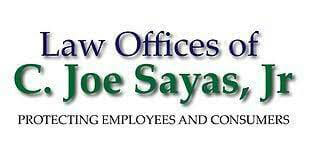Can you have 2 employers for the same job? (Which one should pay back wages?)

Elvia Jimenez worked as a direct employee for Ameritemps, a temporary employee staffing service. Ameritemps placed Jimenez with U.S. Continental Marketing, Inc. (USCM), a manufacturing company that makes shoe care products. Jimenez was performing a supervisory role as a line lead in USCM’s production department, overseeing both temporary and direct employees of USCM. Jimenez’s supervisor was a direct USCM employee.
Even though the temporary employees perform services for USCM, Ameritemps pays them for the work they do with USCM. Ameritemps also provide benefits to these employees, and tracks the employees’ time by using a clock that it provides. USCM maintains the ability to terminate the services of any of its temporary employees. Temporary employees are fired for the same reasons that a direct employee would be fired. However, USCM cannot terminate Ameritemps’ employment relationship with Ameritemps’ employees.
Direct and temporary employees at USCM work alongside each other, using equipment provided by USCM. Additionally, temporary and direct employees supervise and train both temporary and direct employees. USCM’s employee handbook and policies apply to both direct and temporary employees. Thus, in terms of day-to-day work experience with USCM, there is virtually no difference between direct and temporary employees.
Jimenez worked at USCM for 5 years. Sometime during her fifth year, Jimenez alleged that one of USCM’s direct employees harassed her on the basis of her sex. She was later fired by USCM. Afterwards, Ameritemps also fired her. She sued USCM and Ameritemps for wrongful termination, alleging, among other things, sexual harassment and retaliation.
USCM argued that it should not be liable for Jimenez’s firing because it was not Jimenez’s employer. USCM pointed out that it did not hire Jimenez and Jimenez’s paychecks and benefits came from Ameritemps.
The case reached the Court of Appeal, which ruled that employees may have more than one employer. In this case, the contractual obligations of the staffing agency – payroll, timekeeping, and termination of employment with the staffing agency – had no weight in determining whether the contracting company (USCM) was also an employer or not. The issue is one of control.
The court looked at the level of control that USCM could exert over Jimenez’s employment. USCM fired Jimenez from its own employment. Jimenez reported to a direct employee of USCM and in turn supervised USCM direct employees herself. She was subject to USCM training and its policies. All these factors would support a finding that USCM was in fact Jimenez’s employer.
The court concluded that the term “employer” is “expansive” and employees may have more than one at a given time. In this instance, the persons or entities liable for labor violations are called joint employers.
A joint employment relationship has important consequences for the employee. It ensures that employees can hold someone else accountable for their unlawful firing or their unpaid wages in the event that one employer becomes insolvent.
The Law Offices of C. Joe Sayas, Jr. welcomes inquiries about this topic. All inquiries are confidential and at no-cost. You can contact the office at (818) 291-0088 or visit www.joesayaslaw.com. [C. Joe Sayas, Jr., Esq. is an experienced trial attorney who has successfully recovered wages and other monetary damages for thousands of employees and consumers. He was named Top Labor & Employment Attorney in California by the Daily Journal, consistently selected as Super Lawyer by the Los Angeles Magazine, and is a Presidential Awardee for Outstanding Filipino Overseas in 2018.]

